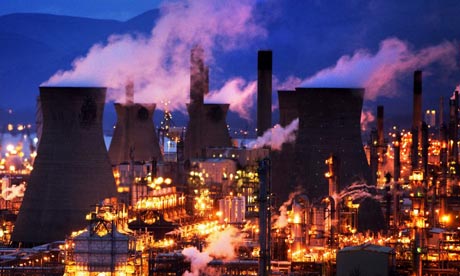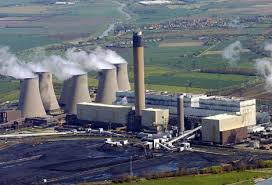Wind energy could generate 20 percent of the electricity needed by households and businesses in the eastern half of the United States by 2024, but it would require up to $90 billion in investment, according to a government report released on Wednesday.
For the 20 percent wind scenario to work, billions must be spent on installing wind towers on land and sea and about 22,000 miles of new high-tech power lines to carry the electricity to cities, according to the study from the Energy Department's National Renewable Energy Laboratory.

 Energy Glance
Energy Glance For now, the only major automaker with a fleet of new all-electric vehicles priced for mainstream consumers is BMW, with its 500 Mini E electrics in what the company describes as a test of the technology. To judge from interviews with drivers and more than a dozen of their blogs, it has also proved to be a test of consumer adaptability.
For now, the only major automaker with a fleet of new all-electric vehicles priced for mainstream consumers is BMW, with its 500 Mini E electrics in what the company describes as a test of the technology. To judge from interviews with drivers and more than a dozen of their blogs, it has also proved to be a test of consumer adaptability. The world is much closer to running out of oil than official estimates admit, according to a whistleblower at the International Energy Agency who claims it has been deliberately underplaying a looming shortage for fear of triggering panic buying.
The world is much closer to running out of oil than official estimates admit, according to a whistleblower at the International Energy Agency who claims it has been deliberately underplaying a looming shortage for fear of triggering panic buying. In a recent application to the state, Pacific Gas and Electric asked to raise service rates by 5 percent for their best energy-conserving customers, typically smaller households.
In a recent application to the state, Pacific Gas and Electric asked to raise service rates by 5 percent for their best energy-conserving customers, typically smaller households. As energy increasingly dominates the economy, a quiet little agency in Washington holds the responsibility for tracking the particles that conduct, fuse, blow, heat, combust and convert the earth, wind and water into the energy that makes our society run.
As energy increasingly dominates the economy, a quiet little agency in Washington holds the responsibility for tracking the particles that conduct, fuse, blow, heat, combust and convert the earth, wind and water into the energy that makes our society run. Generating electricity by burning coal is responsible for about half of an estimated $120 billion in yearly costs from early deaths and health damages to thousands of Americans from the use of fossil fuels, a federal advisory group said Monday.
Generating electricity by burning coal is responsible for about half of an estimated $120 billion in yearly costs from early deaths and health damages to thousands of Americans from the use of fossil fuels, a federal advisory group said Monday. A new technique that tapped previously inaccessible supplies of natural gas in the United States is spreading to the rest of the world, raising hopes of a huge expansion in global reserves of the cleanest fossil fuel.
A new technique that tapped previously inaccessible supplies of natural gas in the United States is spreading to the rest of the world, raising hopes of a huge expansion in global reserves of the cleanest fossil fuel.






























